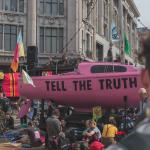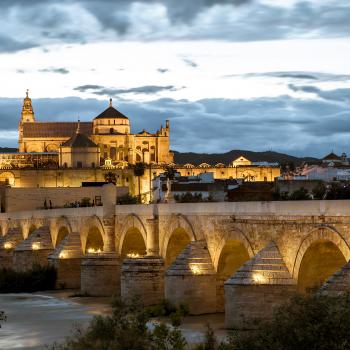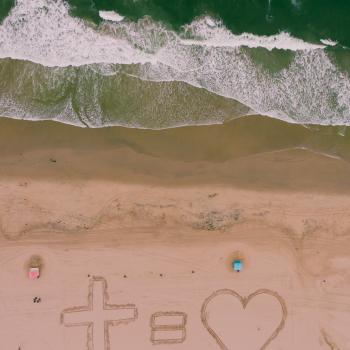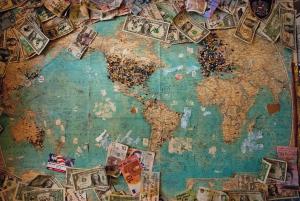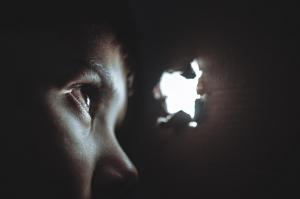
“The Mending Wall,” a poem published during World War I by American poet Robert Frost, narrates the story of a farmer who contacts his neighbor to help him rebuild the stone wall between their two farms.
When the farmer questions the purpose of the wall, the neighbor replies, “good fences make good neighbors.” This celebrated proverb along with its corresponding cultural symbol of a white picket fence has evolved to encapsulate what we now famously refer to as the American dream. Good fences are built on a foundation of laws and civil institutions. Bad ones on corruption, oppression, and colonialism.
When I am asked why the Middle East has not quite mastered this equation, I remind them that the Middle East is too modern an innovation to have mastered much of anything just yet. The modern day Middle East, formally part of the Ottoman Empire, is only a little over one hundred years old.
Most historians would agree that the manner in which the Ottoman Empire was dismantled by the allied forces in the aftermath of World War I was quite arbitrary. It was done with some much disregard for the local populations that the formal procedures one would ordinarily associate with carving out entire nations seems to have been entirely omitted.
It might be a bit facetious but not totally out of line to suggest that the Middle East was pieced together on the back of a napkin by men feasting on crumpets and drinking English tea. It was not built on the reconstruction of good or bad fences but mostly on straddling both. And if the last hundred years is any indication, the results have been disastrous.
Although the Ottoman Empire was considerably weakened by the time World War I had erupted, it was still able to maintain control partly because power was relatively decentralized. Each ethnic and religious group was allowed to self-govern so long as they pledged allegiance to the Sultan and paid their taxes.
The concept of citizenship did not exist back then and communities were recognized solely on the basis of their religious affiliation. Although it has become quite fashionable to emphasize the oppression of minorities in the Islamic empire, the reality is, depending on time and place, people actually sought the protection of the Ottomans in a world where religious persecution was relatively widespread. This arrangement was not without its share of problems nor was it totally egalitarian by any stretch of the imagination. But no matter what perspective you take, the fact is, the Islamic empire was built on fences that were sufficiently fortified to have ushered mankind into a golden period that witnessed some of the greatest cultural achievements in modern history.
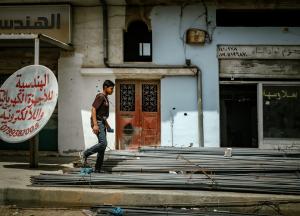
So, what happened? What happened to the Middle East in the last century to lead us to this current state of perpetual crisis?
In 1914, the Ottomans joined forces with Germany against Great Britain and France, making Ottoman territories premium real estate for economic exploitation. In 1915, the British forged a secret deal with Hussein, the ruler of western Arabia, to stage an Arab revolt against the Turks. In return, he promised an independent Arab state for all Arabs. But almost immediately after making this deal, the British signed another secret agreement with France, known as the Skyes-Picot agreement.
This famous agreement promised to give Arabs the worst parts of the Arab peninsula so Britain and France could take over everything else. Shortly thereafter, Britain drew up the Balfour Declaration, encouraging Jewish immigration into the Palestine region of Syria, ultimately leading to the creation of Israel.
It was not until the Paris Peace Conference in 1919 that all these secret treaties were memorialized in the San Remo Agreement, and the promise of Arab independence was totally disregarded. Territories were divided between the French and British. Semi-autonomous regions were pieced together to make up a country. Protests erupted but were quickly crushed. Rulers were propped up to keep a lid on things, but by 1950 the empires collapsed and created a vacuum that only the worst elements of humanity rushed to fill.
The entire region had a sort of nervous breakdown as Saddam Hussain and his ilk came to power and set up a police state not unlike the one you have read about in George Orwell’s 1984; only it was 1979. That reign of terror coupled with the recent western invasions created an even greater vacuum. Only this time, the void was filled without the benefit of the civilized features and props that formally camouflaged the brutality of their secular counterparts. And here we are today.

Arabs have always had someone to blame for their predicament, partly because that has been their reality, but also because the governing powers nourished this mentality to deflect attention away from their own internationally sanctioned criminal behavior. They fostered a culture that always pointed outside of itself to explain what was happening within it. A culture that was defined by what it stood against and not what it stood for. A culture that did not celebrate religion, but actually suppressed it until the only form of protest available to the masses was literalist forms of religious expression. After all, secularism was not introduced to the Arab world as a form of liberation but as a tool of brutality and violent suppression.
But there is no such thing as historical determinism, which means it’s not nearly as hopeless as it appears. A one-hundred-year trajectory can shift in less than one hundred days.
When you are dealing with political problems of this magnitude, faith in the simplicity of this truth is the only way to win any battle. The use of force, even against tyranny, can only be successful when you have the armor of moral certainty. To be morally certain requires an emotional surrender to something higher than yourself.
As American theologian Reinhold Niebuhr put it in 1952, “Nothing that is worth doing can be achieved in our lifetime; therefore, we must be saved by hope. Nothing, which is true or beautiful or good, makes complete sense in any immediate context of history; therefore, we must be saved by faith.”
The notion of a Middle East grounded on a tradition of pluralism and tolerance and built out of a cultural renaissance, which is undoubtedly seething beneath the embers of its scorched earth, is often portrayed as some kind of far-fetched radical fantasy. But it is no fantasy. In fact, I have full faith that this will be the inevitable fate of the Middle East. After all, who says we can’t be one nation, under God, indivisible, with liberty and justice for all? How radical can that possibly be?


